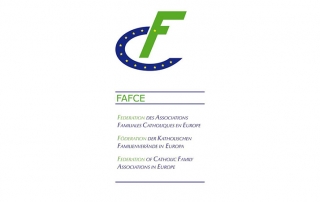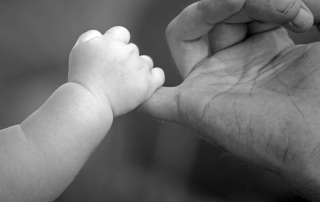Council of Europe
The Council of Europe is a human rights organisation, based in Strasbourg (France), whose stated aim is to uphold human rights, democracy and the rule of law in Europe. Founded in 1949, it has 47 Member-States, including the 27 EU Member-States. Unlike the EU, the Council of Europe cannot make binding laws, however it has the power to enforce international agreements reached by European states on various topics.
Since 2001, FAFCE has been granted a participatory status to the Council of Europe, and supports the rights of the family in the different institutions of the Council of Europe:
- European Court of Human Rights: composed of judges from each Member-State, it ensures the respect of the obligations of Member-States under the European Convention on Human Rights (1950). The Court rules on individual or State applications alleging violations of the civil and political rights set out in the Convention.
- Committee of Ministers: composed of the Foreign Affairs Ministers, usually represented by Permanent Representatives and Ambassadors, it is the decision-making body of the Council of Europe.
- Parliamentary Assembly: composed of parliamentarians from all Member-States, it adopts resolution and recommendations to governments.
- Congress of Local and Regional Authorities of Europe: composed of political representatives from local and regional authorities, it issues opinions on fundamental rights affecting regions and cities.
- Conference of INGOs: composed of NGOs with a participate status, it produces opinions based on the ground expertise of NGOs.
Conscientious Objection: Complaint against Sweden declared admissible
On 10 September the European Committee on Social Rights declared FAFCE's collective complaint against Sweden in favour of conscientious objection for medical staff admissible. In March 2013 the FAFCE filed a collective complaint against the Swedish Government, on the
Sweden discriminates! Collective complaint against Sweden in favor of conscientious objection and respect for democratic procedures
Press Release - Brussels, 8 March 2013 Sweden lacks respect both for the fundamental freedom of conscience laid down by the European Convention on Human Rights and for the democratic proceedings of the Parliamentary Assembly of the
Collective Complaint against Sweden based on lack of respect for right to protection of health and Non-Discrimination
The FAFCE has submitted a collective complaint against Sweden. The FAFCE argues that Sweden lacks respect for articles 11 (right to protection of health) and E (Non-Discrimination) of the European Social Charter. The complaint is part of the procedure foreseen by
Press release | The ECHR upholds the notion of filiation
Brussels, 7th November 2011 The Federation of Catholic Family Associations in Europe (FAFCE) which holds a participatory status with the Council of Europe, greets the final judgment presented on 3rd November 2011 by the European Court of Human Rights (ECHR)
Freedom of conscience preserved and protected: the FAFCE welcomes the resolution adopted by the Parliamentary Assembly of the Council of Europe
On 7 October the Parliamentary Assembly of the Council of Europe adopted a resolution in favour of the right of conscientious objection for medical practitioners: The right to conscientious objection in lawful medical care. The Federation of Catholic
Does the Council of Europe want to restrict freedom of conscience for medical practitioners, a professional duty and a fundamental right?
As the Parliamentary Assembly of the Council of Europe is about to discuss and vote a report entitled 'Women's access to lawful medical care: the problem of unregulated use of lawful conscientious objection', Care for Europe, the European
Press release | Parliamentary Assembly of the Council of Europe Plenary Session : the FAFCE calls for respect of conscientious freedom
During the upcoming plenary session of the Parliamentary Assembly of the Council of Europe, PACE, (4‐8 October), a report entitled 'Women's access to lawful medical care: the problem of unregulated use of lawful conscientious objection', will be presented





